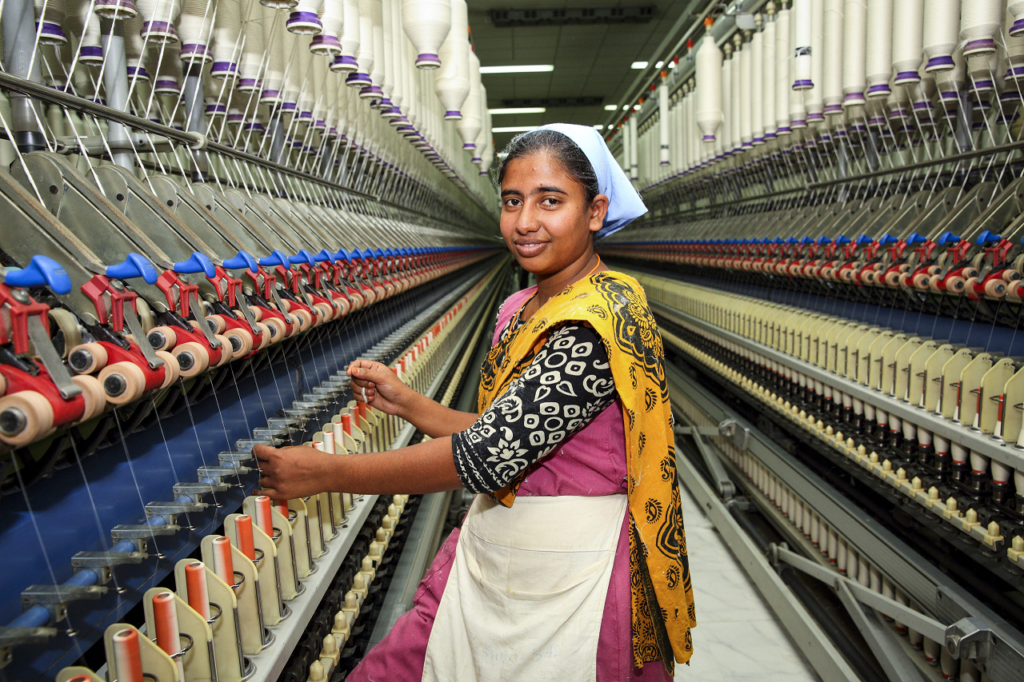The small scale industry sector in India is very important for the economy. It employs over 60 million people and contributes to about 45% of the country’s industrial output. The sector is also very important for the exports of the country. In fact, small scale industries account for about 30% of India’s total exports. However, the sector has been facing some challenges in recent years.

There has been a slowdown in the growth of the sector and it has been lagging behind the overall growth of the economy. The government has taken some measures to support the small scale industry sector and boost its growth. In this blog post, we will take a look at some of these measures and also discuss the challenges that the sector is facing.
What is a small scale industry?
Small scale industries (SSIs) are defined as those enterprises which employ less than 50 workers and have a maximum investment in plant and machinery of Rs. 10 million. In India, the small scale industry sector has been growing steadily over the past few years.
The sector is an important contributor to the country’s GDP, employment, and exports. It plays a critical role in the economic development of India by providing employment opportunities, supporting rural development, and promoting entrepreneurship.
The small scale industry sector is also an important source of foreign exchange earnings for the country. In recent years, the sector has seen a significant increase in foreign investment.
The government of India provides various incentives and support programmes for the development of small scale industries in the country. These include tax holidays, easy access to credit, subsidies on raw materials and electricity, and preferential treatment in government contracts.
The small scale industry sector offers great potential for growth and development in India. With proper support from the government and other stakeholders, the sector can play a major role in achieving inclusive economic growth and development in the country.
Why are small scale industries important in India?
Small scale industries are important in India because they provide employment to a large section of the population and contribute to the economic development of the country.
The small scale industries sector is the second largest employer in India after agriculture and contributes to about 45% of the country’s industrial output. It also exports about 30% of India’s total exports.
The sector comprises of a large number of micro, small and medium enterprises (MSMEs) which are spread across the length and breadth of the country. These enterprises play a vital role in providing employment opportunities, especially in rural areas.
Most MSMEs are located in the unorganized sector and are therefore not subject to stringent quality control and environmental regulations. This makes them more flexible and adaptable to changing market conditions.
MSMEs are also important for their contribution to innovation and technology development. A large number of new products and processes have been developed by small firms in India.
The different types of small scale industries in India
Small scale industries are an important part of the Indian economy, accounting for over 60% of the country’s industrial output. There are a wide variety of small scale industries in India, each with its own unique strengths and weaknesses.
The three most common types of small scale industries in India are:
1. The cottage industry: This is the most traditional type of small scale industry in India, and is typically based in rural areas. Cottage industries typically produce low-tech goods such as textiles, pottery, and leather goods. These industries are often labor-intensive and use simple tools and machinery.
2. The village industry: Village industries are similar to cottage industries, but are typically based in semi-urban or urban areas. Village industries typically produce higher-value goods such as electronics, food products, and clothing. These industries often use more sophisticated tools and machinery than cottage industries.
3. The cluster industry: Cluster industries are groups of small scale industries that are located close to each other, usually within a single town or city. Cluster industries often share resources and infrastructure such as electricity, water, and transportation. These Industries typically produce high-value goods such as automobiles, pharmaceuticals, and computer hardware
Advantages and disadvantages of small scale industries
Small scale industries (SSIs) are a backbone of the Indian economy. According to the latest data released by the Ministry of Micro, Small and Medium Enterprises (MSME), there are over 63 million MSMEs in India, which contribute to almost 37% of the country’s GDP.
The advantages of SSIs are many. They promote entrepreneurship and generate employment, thereby contributing to economic growth. They also promote rural development and help in the balanced regional growth of the country. Moreover, they utilize local resources and promote indigenous technology.
However, SSIs also have some disadvantages. They are often associated with low quality products and unskilled labor. They also face stiff competition from large scale industries and multinational corporations. Additionally, they are often plagued by power cuts and other infrastructure problems.
How to start a small scale industry in India
Small scale industries (SSIs) are an important part of the Indian economy. They provide employment opportunities to a large section of the population and contribute significantly to the country’s industrial output.
However, starting a small scale industry in India can be a daunting task for entrepreneurs. There are numerous procedures and permissions that need to be obtained before setting up an SSI. In addition, it is important to have a clear understanding of the market and the potential customers before starting an SSI.
The following is a step-by-step guide on how to start a small scale industry in India:
1. Obtain registration from the Registrar of Companies: Any company that wants to set up an SSI in India must first obtain registration from the Registrar of Companies (ROC). The ROC is responsible for incorporating companies and LLPs in India and maintaining their records. The application for registration can be filed online on the ROC website.
2. Get environment clearance: All industries, whether large or small, need to obtain environmental clearance from the concerned authorities before commencing operations. This is necessary to ensure that the proposed industry does not have any negative impact on the environment. The application for environmental clearance must be submitted online on the website of the Ministry of Environment, Forest and Climate Change (MoEF&CC).
3. Apply for industrial license: An industrial license is required for setting up certain types of industries in India such as those engaged in manufacturing explosives or
Government policies for small scale industries
The Government of India has been endeavouring to promote the growth of small scale industries in the country. In order to provide a conducive environment for the development of small scale industries, the government has put in place a number of policies and programmes.
Some of the key government policies for small scale industries in India are as follows:
1. The Micro, Small and Medium Enterprises Development (MSMED) Act, 2006: The MSMED Act provides for a separate and dedicated policy framework for the development of micro, small and medium enterprises in India. It aims to promote the growth and development of these enterprises by providing them with easier access to credit, technology upgradation, marketing support, etc.
2. The Prime Minister’s Employment Generation Programme (PMEGP): The PMEGP is a centrally sponsored scheme that seeks to generate self-employment opportunities through the setting up of new micro-enterprises. Under this scheme, financial assistance is provided for various activities such as manufacturing, processing, service enterprises, etc.
3. The Cluster Development Programme (CDP): The CDP is an initiative of the Ministry of Micro, Small and Medium Enterprises which aims to promote competitiveness among MSMEs by developing them into clusters. Under this programme, financial and technical assistance is provided for various activities such as feasibility studies, common facility centre setup, R&D support, etc.
Also Read : Section 54 of the Income Tax Act

